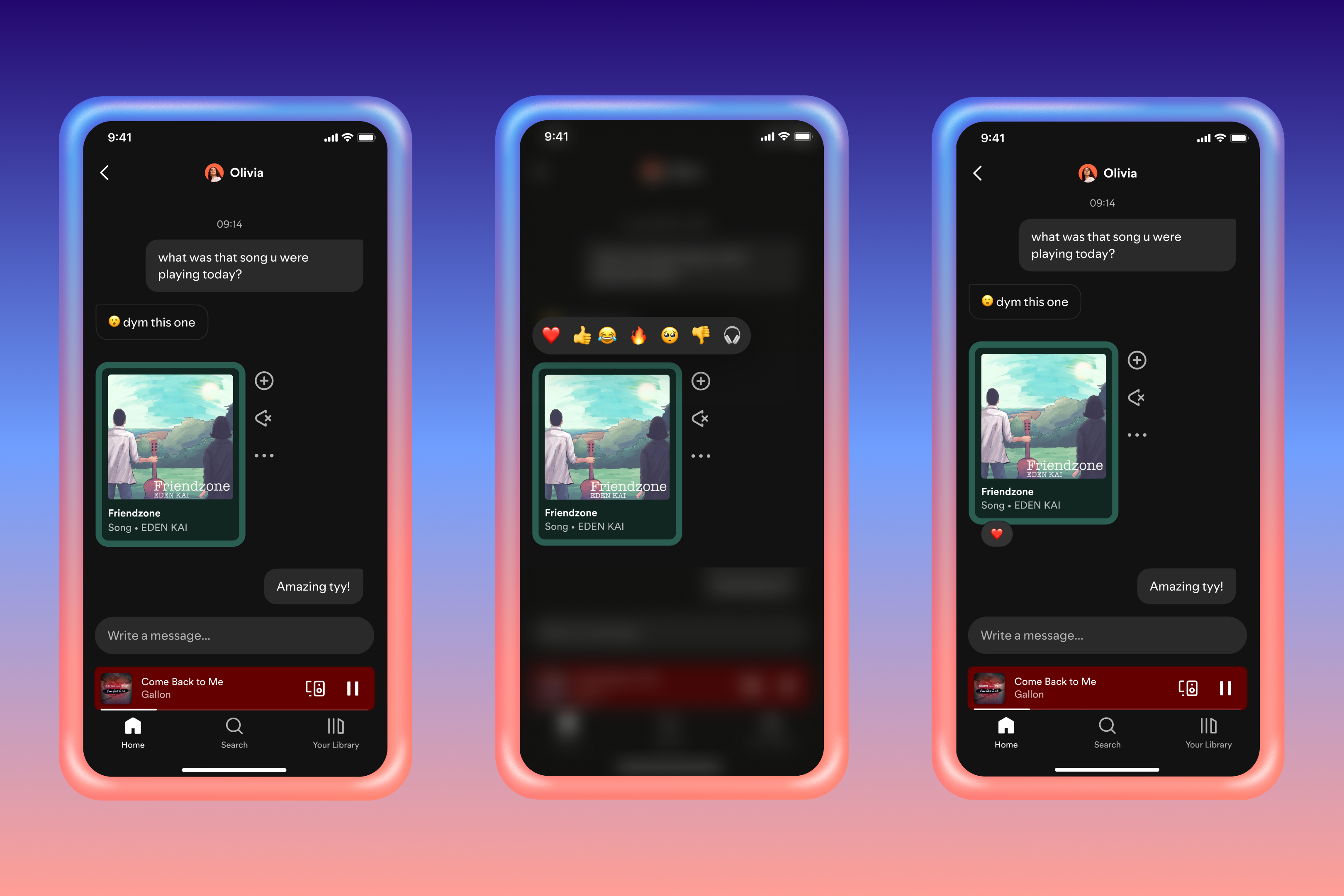Spotify Rolls Out In-App Messaging to Users Aged 16+ in Select Markets

Spotify has recently reintroduced an in-app messaging feature, dubbed "Messages," allowing users aged 16 and older in select markets to directly share and discuss music, podcasts, and audiobooks. The move, which began rolling out in August 2025, aims to enhance social interaction and content discovery directly within the streaming platform. As user @varepsilon questioned on social media, "so why is spotify going all in on messages all of a sudden," the company's strategy focuses on leveraging word-of-mouth recommendations.
The new "Messages" feature enables one-on-one conversations where users can share any Spotify content and react with text and emojis. To initiate a chat, users tap the share icon in the "Now Playing" view, select a friend, and send. Conversations can be started with individuals with whom users have previously interacted, such as through collaborative playlists or shared family plans.
Spotify stated that recommendations have always been central to its experience, with friends and family sharing content millions of times monthly. The company aims to provide a dedicated, seamless space within the app for these interactions, fostering organic word-of-mouth growth for artists and creators. This internal sharing is designed to complement, rather historic, existing sharing options via external platforms like Instagram or WhatsApp.
This is not Spotify's first foray into in-app messaging, as a similar feature was discontinued in 2017 due to low engagement. However, the company believes the current landscape, marked by increased demand for social connectivity, makes this the opportune time for re-introduction. While some critics express concerns about app clutter, Spotify emphasizes that the feature responds to user feedback and aligns with a broader push toward community-driven listening.
Messages are protected with industry-standard encryption, and users retain control over their interactions, with options to accept or reject message requests, block users, and report harmful content. Spotify also employs proactive detection technology and human moderators to ensure a safer environment. The company plans to continue building and refining the messaging experience for more users globally in the coming months.